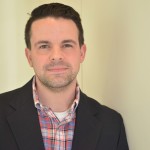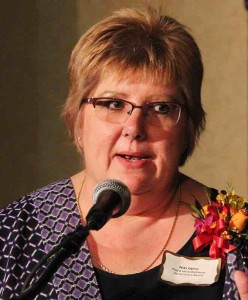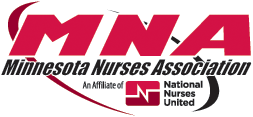By Mathew J. Keller, RN JD

Regulatory and Policy Nursing Specialist
Regulatory and Policy Nursing Specialist
When patients are at risk, nurses are the first line of defense. But what happens when hospital leadership isn’t listening to its nurses? That’s the dilemma Clinical Nurse Specialist and 2015 MNA “Social Justice” Award winner Niki Gjere faced in reporting her concerns of unethical and dangerous research practices to Fairview-Riverside leaders (a site for recruitment of research subjects for the U’s psychiatric department) and University administrators, as detailed in Part I.
I believe this unassuming nurse leader is not only credible but courageous. She took her concerns about these vulnerable patients to the highest levels of state government. Then, after seeing no changes, she went public.
“I felt as though I was failing in my role as a CNS,” Gjere said. “I couldn’t get any action on these serious safety issues. It’s our duty and ethical obligation as nurses to use all of the tools available to us to advocate for our patients, and I felt that going public was one of the last tools in my toolbox.” Niki went to Jeff Baillon, KMSP-TV Fox 9 reporter, who ran an investigative report showing an alarming lack of changes in University research practices.

Since Gjere went public in 2014, there has been increasing scrutiny of the U’s research practices. A scathing 2015 report by the Office of the Legislative Auditor (OLA) found evidence of coercion, conflicts of interest, improper research oversight, and consistent misrepresentations by university leaders aimed at misleading the public and investigators. In light of this report, the University temporarily suspended enrollment in psychiatric drug trials. A 2016 external review of psychiatric research at the University, commissioned by the U itself (and conducted by a consultant hand-selected by the University) found “continued ethics lapses, including underqualified staff working with research subjects and a psychiatrist who cut corners on obtaining patient consent.”
But Gjere is not done in her quest to protect patients at Fairview-Riverside and the University. “The University continues to this day in its obfuscation … I continue to see patient safety issues and questionable practices which demand correction in current and proposed psychiatric research.” So, Niki dug deep and found yet one more item in her toolbox: she’s testified three times at the legislature this year on the need for external oversight of the University’s psychiatric clinical trials.
Whistleblowing, however, is not without its dangers, especially when the target is the University of Minnesota. Retaliation at the workplace is a regular concern. University of Minnesota Officials have consistently denied accusations and gone so far as to try to discredit Gjere. As one email penned by a high-level university official and obtained through an open records request stated, “Gjere fails to meet a standard of credibility.”
State Representative Connie Bernardy disagrees. The New Brighton Democrat heard from both sides as a member of the House Higher Education Policy and Finance Committee.
“This is about protecting people and listening to their families who are advocating for their health and safety,” Bernardy said. “I admire Niki’s courage to speak out to help protect people who are participating in these studies. We need to stand by whistle blowers, support them and protect them from retaliation. This is not easy, but we want their message to be taken seriously so we can change systems that aren’t protecting people. When patients or people who are part of studies and their families are not being listened to, nurses become the first line of defense in helping to protect patients, especially those who are vulnerable. We must do all we can to hear their voices.”
“This is the worst scandal I’ve seen since I’ve been in Minnesota,” said former Minnesota Governor Arne Carlson. “The University has engaged over the years in a continuous pattern of dishonesty, incompetence, and cover-ups. We as a state say we protect whistleblowers, but the sad reality is the University has done everything they can to discredit those seeking the truth, including Niki Gjere, Carl Elliott, Leigh Turner and all the others who have dared to ask questions. There is an unwillingness to hold anyone accountable. Now thanks in part to Representative Bernardy and Niki Gjere, it appears we will get some action from the legislature. This is one of the most vital institutions in Minnesota, and I do not believe there is another entity in the entire state that would tolerate the kind of misbehavior we’ve seen there. If this happened in a Minnesota city, they would throw the mayor out, all the way to Wisconsin. The University has abandoned its mission to serve the public and instead its administrators are doing everything they can to protect themselves. It’s outrageous—the whole barn needs to be swept clean.”
We as a profession must take action to support those who are willing to stand up for the most vulnerable amongst us. Email University President Eric Kaler and tell him that you support Niki Gjere’s courageous advocacy for the most vulnerable of patients.
For her part, Niki asks that you request your legislators’ support for state Ombudsman oversight of psychiatric clinical trials at the University of Minnesota. As she puts it, “changes are needed in order to protect the University’s psychiatric research patients. Current oversight is not working. Something must be done.”


